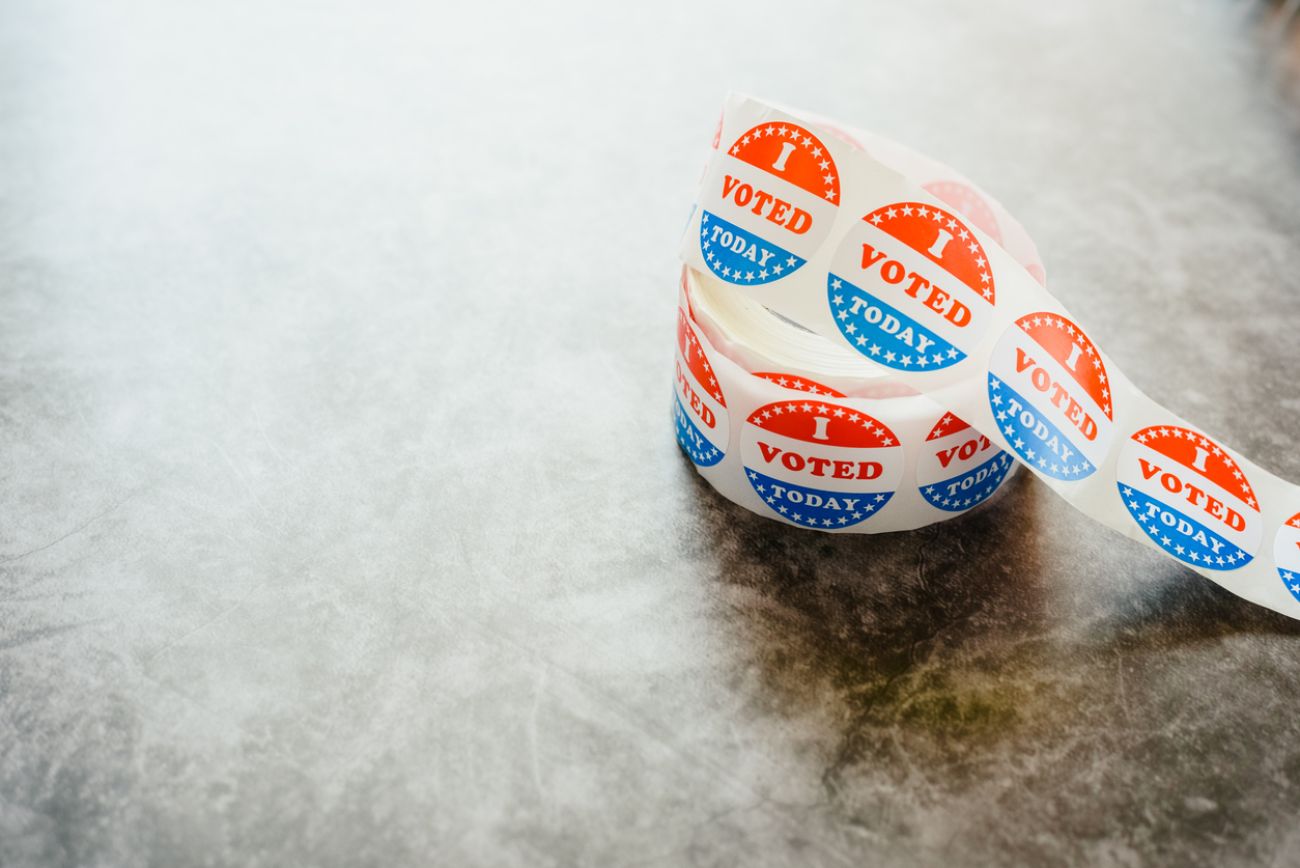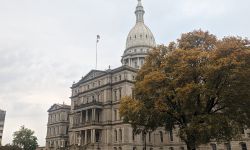Michigan defends bloated voter rolls with 625,000 cancellations pending

Michigan has 8.2 million registered voters on the books. That’s 102.8% of the 7.9 million voting-age residents in the state, per census data — but election officials say that’s largely due to requirements that inactive voters be given ample time before they’re removed from the rolls. (iStock photo by CorbalanStudio)

- Election officials answered questions this week about the state’s voter rolls amid recent challenges from activists
- Michigan election officials monitoring for ‘unusual’ activity in voter file to ensure registered voters aren’t improperly removed early
- Discrepancies between registered voters and number of voting-age residents largely due to state and federal requirements, officials say
LANSING — The Michigan Bureau of Elections on Wednesday defended excess voter registrations that have spurred challenges from right-wing activists around the country.
Earlier this week, the New York Times reported that allies of former President Donald Trump have been pressuring local officials in Michigan and other battleground states to purge the rolls of inactive voters.
In one instance, 1,000 registered Waterford Township voters were removed from the rolls in response to such a request.
And in January, the Michigan Republican Party partnered with a group called Check My Vote to urge local clerks and party officials to sign a pledge that they would help “clean up” the voter rolls.
The challenges stem from pervasive theories that registration data in the state’s Qualified Voter File is a breeding ground for fraud and leaves the door open for ballots to be cast in the names of voters who died or moved.
Related:
- Trump set for Michigan ballot as Supreme Court rejects insurrection case
- 'Good time' prison reform push well short on signatures for Michigan ballot
- Michigan Dems aim to ban guns at voting locations
Official audits and investigations of the files have dug up no foul play — and state elections officials say many of the inactive registered voters in question cannot be immediately canceled due to state and federal rules.
“If somebody's making one of these challenges, we want to make sure that no voter gets canceled unless they're getting the legally entitled process,” Michigan Elections Director Jonathan Brater, who works under Democratic Secretary of State Jocelyn Benson, told reporters Wednesday.
“We're certainly going to be monitoring any activity in the voter file that looks unusual to make sure that there aren't undue challenges that are being processed without the voter getting their legally entitled protections.”
Among activists’ concerns is the number of registrations on the books in Michigan compared to the number of voting-age residents in the state.
As it stands, Michigan has 8.2 million registered voters on the books. That’s 102.8% of the state’s 7.9 million voting-age residents, according to census data.
The discrepancy isn’t new, but Michigan largely stands alone in this regard. As of 2022, Michigan was the only Great Lakes state where the registered voter tally outnumbered the state’s voting-age population.
State and federal regulations require election officials to give inactive voters a lengthy grace period before officially taking them off the books, allowing time for them to either confirm their residency or resume voting.
Michigan election data shows 531,877 registrations are slated for cancellation in 2025, and another 94,036 are set to be canceled in 2027.
“If you look at those individuals who are slated for cancellation, that does bring us well under whatever census number you might want to look at,” Brater said.
Other factors contributing to the discrepancy include Michigan’s higher-than-average number of registered voters and a 2020 statewide mailing of absentee ballot applications, where returned mail helped alert officials to changes of address that had flown under the radar, Brater said.
Some of those registrations could also belong to deceased voters, who are removed from the rolls on a rolling basis.
Last week, a federal court dismissed a lawsuit against Benson, the Democratic Secretary of State, that claimed she wasn’t doing enough to cancel registrations after voters died.
The complaint from the Public Interest Legal Foundation identified 27,000 "potentially deceased voters” on the Michigan rolls.
But even if those figures are accurate, "that number of deceased voters would simply not be unreasonable in a state the size of Michigan," U.S. District Court Judge Jane M. Beckering wrote in her ruling.
"Federally collected data shows that Michigan is consistently among the most active states in the United States in canceling the registrations of deceased individuals."
Brater, the elections director, said Wednesday that local officials are allowed to remove individual voters from the rolls if they’ve directly confirmed that the person has moved or died.
But to do so without confirmation would be “improper,” he said.
See what new members are saying about why they donated to Bridge Michigan:
- “In order for this information to be accurate and unbiased it must be underwritten by its readers, not by special interests.” - Larry S.
- “Not many other media sources report on the topics Bridge does.” - Susan B.
- “Your journalism is outstanding and rare these days.” - Mark S.
If you want to ensure the future of nonpartisan, nonprofit Michigan journalism, please become a member today. You, too, will be asked why you donated and maybe we'll feature your quote next time!


